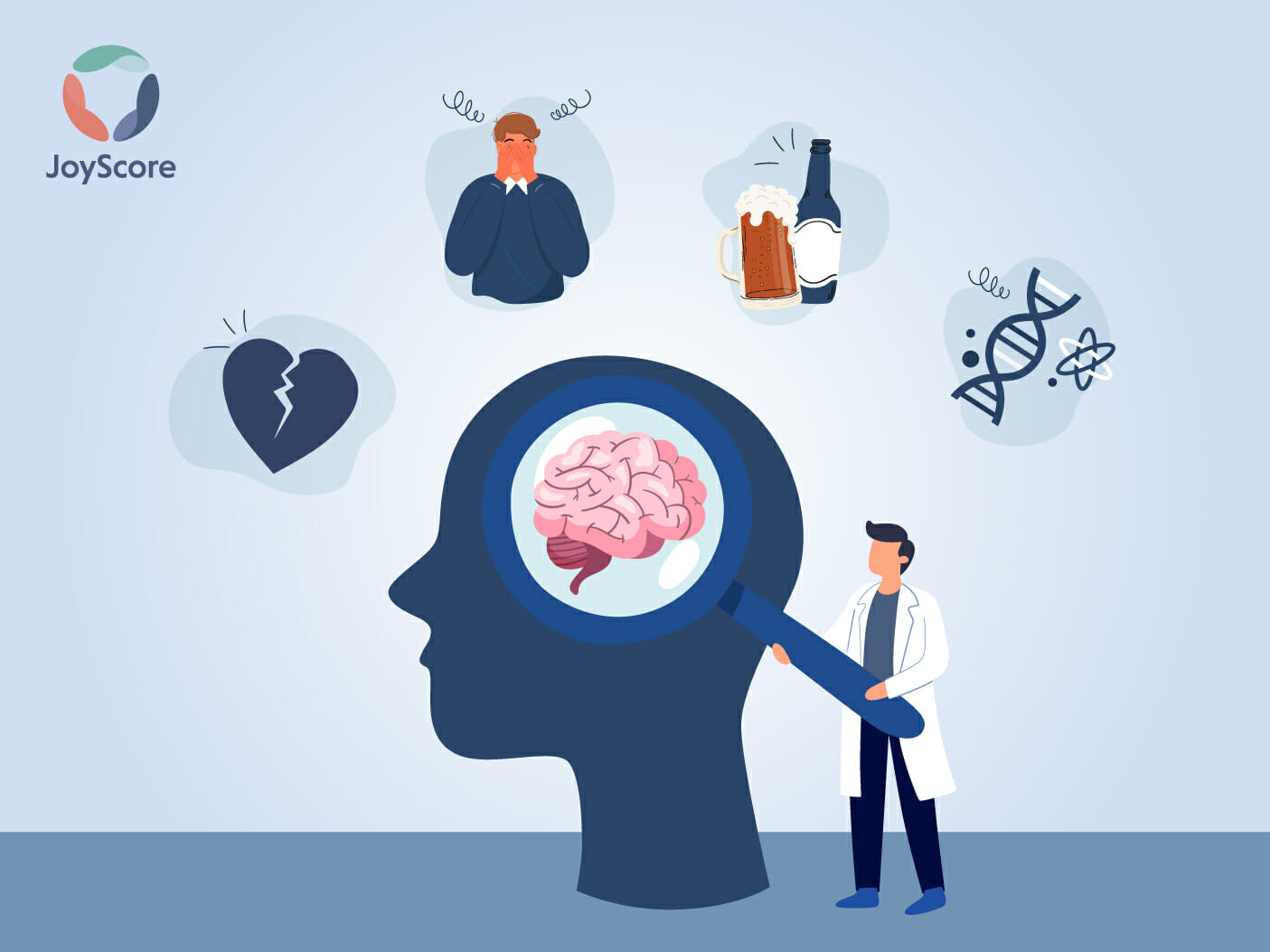There is a lot of stigmas attached to mental illness. But just like heart disease or diabetes, it is also a medical condition. And mental health conditions are treatable.
Mental illnesses are health conditions showing sudden or gradual changes in emotion, thinking, or behavior (or a combination of these). Mental illness is common. Statistics reveal that :
- Almost one in five (19 percent) U.S. adults experience some form of mental illness.
- One in 24 (4.1 percent) have a severe mental illness.
- One in 12 (8.5 percent) suffer from substance use disorder.

Examples of severe mental Illness include major depressive disorder, schizophrenia, and bipolar disorder. Although the precise cause of most psychiatric disorders like mental illness is not evident, research suggests that most of these conditions are because of a mixture of biological, psychological, and environmental factors.
Biological Factors
The abnormal functioning of nerve cell circuits that bind specific brain regions do have a connection to mental illnesses.
- Genetics (heredity): Mental disorders often arise in families. Individuals who have a mentally unstable family member may be much more likely to acquire one of their own.
- Infections: Certain infections cause brain damage and mental illness development or the worsen the symptoms further.
- Brain defects or injury: Defects in or damage some brain regions are also associated with mental illness.
- Prenatal damage: Some research indicates that a disturbance of early development of the fetal brain or trauma that occurs at birth, such as oxygen deprivation to the mind, may develop certain disorders, such as autism spectrum disorder.
- Other factors: Malnutrition and exposure to toxins, such as lead, may play a role in developing mental illnesses.
Psychological Factors
Psychological variables that can lead to mental illness are:
- Significant psychological trauma, such as emotional or physical violence, suffered as an infant.
- Parent-Child Separation: Experiencing a consequential early loss of a parent or a dear one.
- Neglect or ignorance from your loved ones.
- Lack of Empathy towards humans and animals.
- Sexual difficulties
- Marriage problems
Socio-cultural Factors
In a person who is vulnerable to mental illness, particular trigger events may cause disease. Following are few trigger events:
- Death or divorce
- A dysfunctional family life
- Feelings of inadequacy, low self-esteem, anxiety, anger, stress, or loneliness
- Changing jobs or schools
- Social or cultural expectations (For example, a society that associates beauty with thinness can be a factor in developing eating disorders.)
- Poverty
- Unemployment
- Alcoholism

It’s necessary to note that mental illness is not less severe than any other disorder, less worthy of acknowledgment and treatment, or easier to recover, only because we are not sure of the exact cause of anyone having a mental health problem.
JoyScore is your digital guide dedicated to improving your Mind, Body, and Life by helping you experience better sleep, increased productivity while relieving stress and anxiety by building simple habits through recommended activities. The app is a perfect meditation, wellness, and mindfulness app that includes a personalized journey, keeping your motivation and mental health on track with carefully crafted activities that boost your daily basis focused on self-care and wellbeing.



